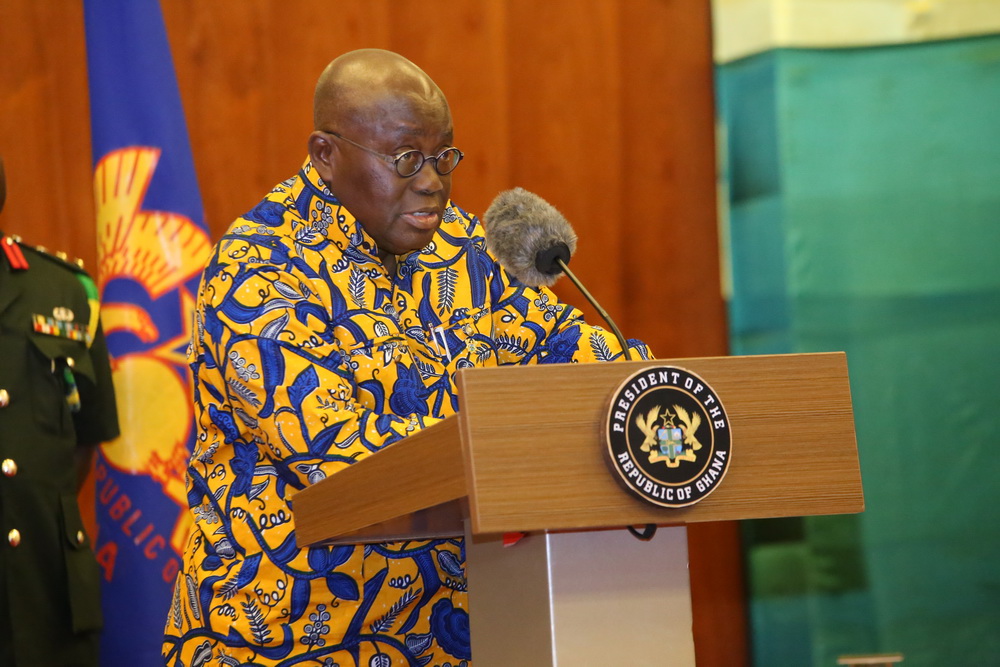
‘Ghana won’t extend IMF programme beyond 2018’
The government will not extend its programme with the International Monetary Fund (IMF) beyond next year, President Nana Addo Dankwa Akufo-Addo has stated emphatically.
Advertisement
In what is expected to end the protracted uncertainties about the government’s position on the IMF after it ends in 2018, he said: “My government’s last budget statement under the IMF will be the 2018 budget and will be presented to the Parliament of Ghana in October this year.”
Surrounded by his ministers and other senior members of his government, as well as some party big wigs, President Akufo-Addo cleared the air when he answered questions from a section of the media at the seat of government, Flagstaff House in Accra yesterday.
“We will complete the IMF programme in the last budget statement and we are committed to that decision,” he said, adding that the government was determined to reduce its over-reliance on external donors to support the country’s budget.
He said the country had reached a stage where it had to confront its future by putting in place the right policies to generate revenue to spend on its needs.
President Akufo-Addo said the government was determined to lead the way to enable the country to grow, saying: “We will work to grow ourselves and depend less on external sources.”
He admitted there had been a lot of commentaries on the government’s position but expressed the hope that his statement would end the debate and uncertainty surrounding the government and the IMF programme.
IMF bailout
The IMF approved Ghana’s request for a bailout programme to help stabilise the country’s economy in the first week of April 2015. Ghana, under the programme which received a lot of backlash from the ruling party, then in opposition, was expected to get $918 million spread over three years following the board's approval.
Other Trending Stories
The release of the funds under the programme is underpinned by strengthened fiscal consolidation efforts that hinged on prudent public expenditure management, enhanced domestic revenue mobilisation, public sector reforms, with particular emphasis on staff rationalisation in the public service and better controlling the wage bill.
The IMF is expected to extend Ghana’s three-year programme with the fund after some targets under the bailout deal were missed by the previous governmen,t but the present government is optimistic of weaning the country off the programme by the end of 2018.
The IMF programme was originally expected to end in April 2018 but has now been extended to December 2018.
In 2016, Ghana’s overall fiscal deficit (on a cash basis) deteriorated to an estimated nine per cent of gross domesticproduct (GDP), instead of declining to 5¼ per cent of GDP as envisaged under the IMF-supported programme. The large deviation was mainly due to poor oil and non-oil revenue performance and large expenditure overruns.
It is, however, expected that with the new oil streams from Sankofa and TEN fields, revenue from oil will be slightly better than the previous years in spite of the low prices of the commodity on the international market.
The IMF programme is said to provide market support and confidence to a country that does not intend to give investors wrong signals.





